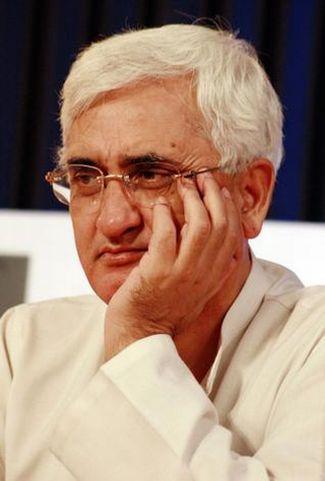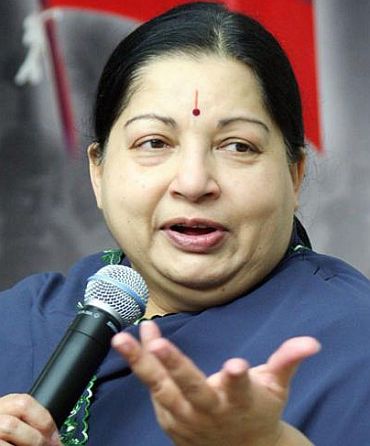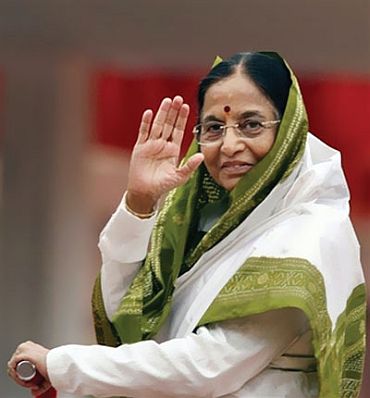 | « Back to article | Print this article |
TN resolution on Rajiv killers not binding: Govt
Law Minister Salman Khurshid on Tuesday said the resolution passed by the Tamil Nadu assembly seeking amnesty for Rajiv Gandhi's killers was not binding on anybody.
"The state government resolution is not binding on anyone. The state government passes a resolution... I am sure that at the level at which it must be taken seriously and considered it will be taken," Khurshid told media persons outside Parliament House in reply to a question.
The Tamil Nadu Assembly has passed a resolution demanding that the three killers of former Prime Minister Rajiv Gandhi should not be hanged. The execution was to take place on September 9.
Khurshid evaded questions on the high court decision staying the execution but maintained that it was only an interim order.
Click on NEXT to read further...
TN resolution on Rajiv killers not binding: Govt
"I cannot interfere with any high court decision. I am only here cognizant of what the decision of the President was. That is all I know," he said.
"High courts and the Supreme Court can take their own view. I cannot comment on any view they have taken particularly till the view becomes final. It is an interim order which they have passed and I am sure the government will respond to it," Khurshid added.
Moving the resolution in the assembly, Chief Minister Jayalalithaa said the people of the state were "saddened" by the fact that the death sentence to the three was to be executed soon.
Jayalalithaa, who had on Monday expressed her inability to intervene on the issue, said, "Many political parties have appealed to me to commute death sentences and in order to respect the sentiments of the people of the state, I appeal to the members of the house to pass the resolution unanimously".
TN resolution on Rajiv killers not binding: Govt
The chief minister said she told the state assembly on Monday that only the President could reconsider the decision of rejecting the mercy petitions as the state Governor could not take a decision on a mercy plea rejected by the President.
The mercy petitions of the three convicts were rejected by President Pratibha Patil early this month, 11 years after the submission of the petitions and 20 years after the assassination.
Santhan, Murugan and Perarivalan had sought to set aside the order of the President on the ground of 'undue delay' in disposing of their mercy petitions.
They claimed "an unwarranted, illegal and unconstitutional delay is caused by the President and the Union of India in the disposal of the mercy petition".
"No explanation has been offered either for the delay in forwarding of the mercy petitions by the state government to the President or the delay in disposal by both the authorities," they contended.


